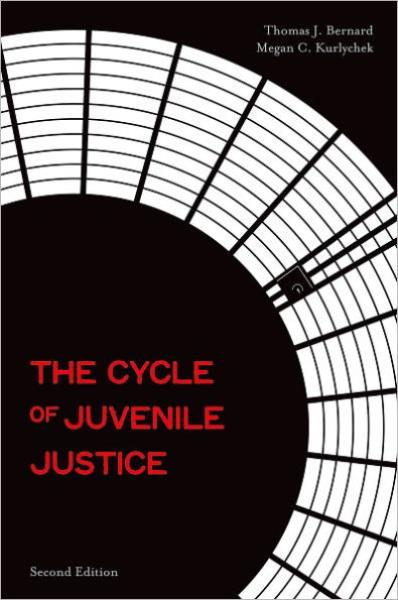Description
The Cycle of Juvenile Justice takes a historical look at juvenile justice policies in the United States. Tracing a pattern of policies over the past 200 years, the book reveals cycles of reforms advocating either lenient treatment or harsh punishments for juvenile delinquents. Bernard and Kurlychek see this cycle as driven by several unchanging ideas that force us to repeat, rather than learn from, our history. This timely new edition provides a substantial update from the original, incorporating the vast policy changes from the 1990s to the present, and placing these changes in their broader historical context and their place within the cycle of juvenile justice. The authors provide a provocative and honest assessment of juvenile justice in the 21st century, arguing that no policy can solve the problem of youth crime since it arises not from the juvenile justice system, but from deeper social conditions and inequalities. With this highly-anticipated new edition, The Cycle of Juvenile Justice will continue to provide a controversial, challenging, and enlightening perspective for a broad array of juvenile justice officials, scholars, and students alike.
There is much to like in the second edition, including references to more contemporary data and detailed treatment of important new developments, so this revision is quite timely. I applaud the authors for a solid, effective revision of an outstanding book.--Robert Brame, Professor of Criminal Justice and Criminology, University of North Carolina, Charlotte
This 'hits' on all counts. This second edition revision is as engaging, easy to read, and well-argued as the first. Scholars will cite it in their research, graduate and undergraduate students will learn a great deal from it, and it will certainly enhance the efforts of many practitioners and juvenile justice officials.--Daniel P. Mears, Professor of Criminology and Criminal Justice, Florida State University
The Cycle of Juvenile Justice was a worthy book the first time and the second edition is an even more worthy successor.--Barry C. Feld, Professor of Law, University of Minnesota
Written in accessible, engaging prose and arranged in an especially organized fashion with a multitude of headings and subheadings to guide the reader through a systematic application of a refreshingly parsimonious model. Highly recommended. --Choice
There is much to like in the second edition, including references to more contemporary data and detailed treatment of important new developments, so this revision is quite timely. I applaud the authors for a solid, effective revision of an outstanding book.--Robert Brame, Professor of Criminal Justice and Criminology, University of North Carolina, Charlotte
This 'hits' on all counts. This second edition revision is as engaging, easy to read, and well-argued as the first. Scholars will cite it in their research, graduate and undergraduate students will learn a great deal from it, and it will certainly enhance the efforts of many practitioners and juvenile justice officials.--Daniel P. Mears, Professor of Criminology and Criminal Justice, Florida State University
The Cycle of Juvenile Justice was a worthy book the first time and the second edition is an even more worthy successor.--Barry C. Feld, Professor of Law, University of Minnesota
Written in accessible, engaging prose and arranged in an especially organized fashion with a multitude of headings and subheadings to guide the reader through a systematic application of a refreshingly parsimonious model. Highly recommended. --Choice
Last updated on
Product Details
- Oxford University Press, Brand
- Oct 14, 2010 Pub Date:
- 0195370368 ISBN-10:
- 9780195370362 ISBN-13:
- 256 Pages
- 9.1 in * 6.1 in * 0.7 in Dimensions:
- 1 lb Weight:




